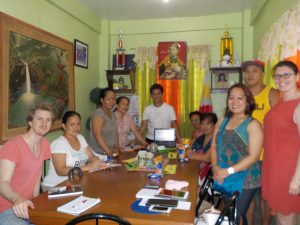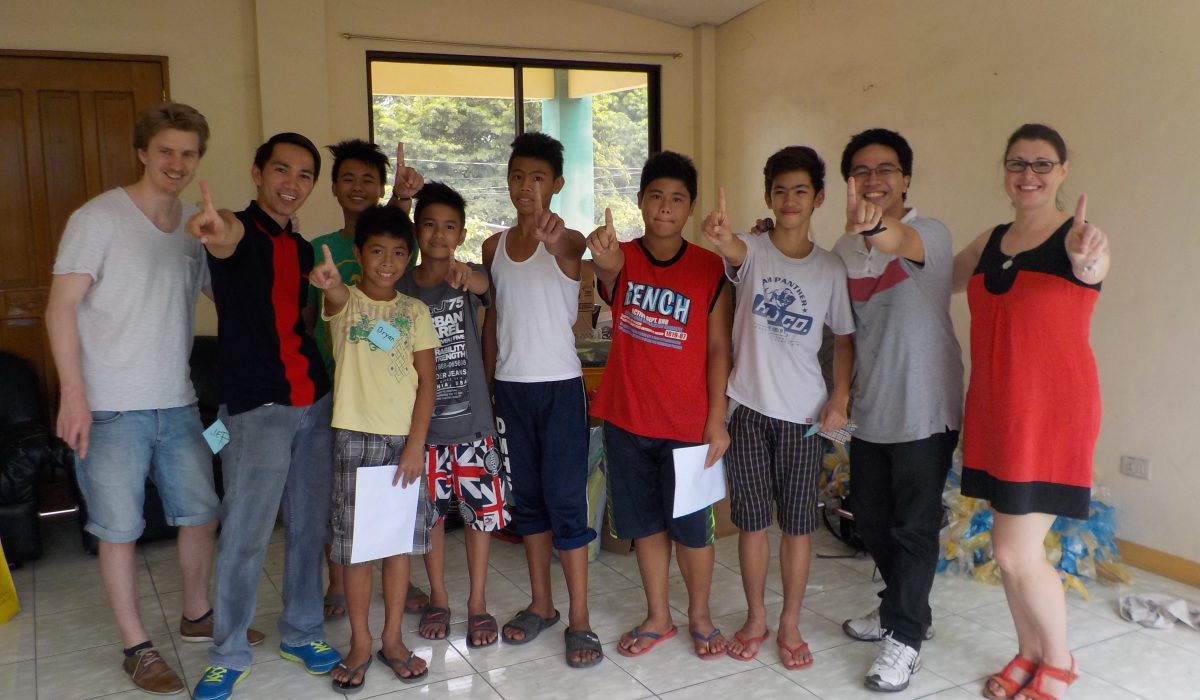 UNICEF Philippines convened a workshop in Manila to strengthen collaboration among industry, government and non-governmental organizations for the protection of children against online sexual abuse and exploitation. The aim was to build a common understanding among key actors on global best practices, tools, resources and industry standards. A specific objective was also to form a loose coalition on child online protection in the Philippines, to strengthen cooperation and information sharing across sectors. Actors from several government ministries, as well as industry, law enforcement, and NGOs participated.
UNICEF Philippines convened a workshop in Manila to strengthen collaboration among industry, government and non-governmental organizations for the protection of children against online sexual abuse and exploitation. The aim was to build a common understanding among key actors on global best practices, tools, resources and industry standards. A specific objective was also to form a loose coalition on child online protection in the Philippines, to strengthen cooperation and information sharing across sectors. Actors from several government ministries, as well as industry, law enforcement, and NGOs participated.
As part of the workshop, Daniel Kardefelt-Winther from UNICEF Office of Research – Innocenti introduced the Global Kids Online research partnership, which will be implemented in the Philippines during 2017 by UNICEF Philippines in collaboration with De La Salle University. The workshop provided an opportunity for government and other stakeholders to engage directly with UNICEF and the research team and discuss what particular questions and topics would be of relevance to government’s policy priorities and how they could be included in the study. This model of working is particularly helpful in achieving strong multi-stakeholder engagement and could facilitate greater uptake of research results. Due to the flexibility of the Global Kids Online research methodology, which explicitly emphasizes the importance of country context and current policy climate, most requests for data by partners can be easily accommodated.
In the Philippines country project, particular emphasis will be placed on the challenge of online violence, sexual exploitation and abuse of children, an area where UNICEF Philippines has already conducted high quality research and advocacy. In addition, the project will be one of the first to explore in-depth how children in conflict zones use digital technology and how their online experiences interact with this challenging living environment. It is crucial to understand whether technology can be leveraged to create new opportunities for those who are more vulnerable, but also if children living in conflict zones may be exposed to new forms of online risk. The Philippines will be the first Global Kids Online country to tentatively explore if and how digital technology may change children’s aspirations – relating to their career prospects, education, living environment or marriage. It is hoped that these findings may pave the way for future interventions that can change children’s aspirations in life to be more positive, ambitious, and well-informed.
Findings from new Global Kids Online studies will be presented throughout 2017 – stay tuned as we continue to deliver the latest results from our partners in Bulgaria, Montenegro, Philippines, Chile and Ghana.
Further resources:
Merle Tan, University of the Philippines, Manila talks about the need for new evidence
Global Kids Online pilot survey in the Philippines
Preliminary findings from the pilot survey
More Global Kids Online country findings
Live online conversation about the Global Kids Online research
UNICEF Innocenti’s research on child rights in the digital age
You can sign up to receive the latest research news from Global Kids Online by email. Please forward this message to anyone you think may be interested.
Post author: Daniel Kardefelt-Winther








